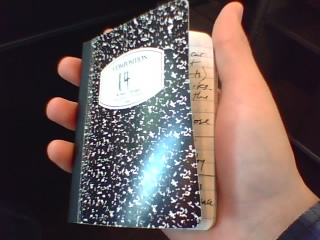| Nocturn to Rosario
Well, then, I am compelled
to say that I adore thee;
to tell thee that I love thee
with all my heart;
that there is much I suffer,
and that much I weep;
that more I can not bear,
and at the cry in which I implore
I entreat thee and speak in the name
of my lost illusions.
At night, when I rest
my temples on my pillow,
and towards another world
I wish to turn my mind,
I walk on, and on,
and at my journey’s end
the forms of my parents
are lost in vacancy,
and thou again returnest
to appear in my heart.
I understand thy kisses
are never to be mine;
I understand that in thine eyes
I ne’er shall see myself;
and I love thee, and in my mad
and ardent deliriums
I bless thy frowns;
I admire thy indifference.
And instead of loving thee less
I worship thee much more.
At times I think of giving thee
my eternal farewell;
to blot thee from my memory
and drown thee in my passion;
but if all be in vain,
and my soul forget thee not,
what wilt thou that I do,
part of my life,
what wilt thou that I do
with this—my heart?
And then, when thy sanctuary
was completed,
thy lamp was burning,
thy veil on the altar.
The sun of the morning
behind the belfry,
the torches emitting sparks,
the incensory smoking,
and there, open in the distance,
the door of my home.
I want you to know
that already many days
have I been ill and pallid
from so much lost sleep;
that all my hopes
have already died;
that my nights are dark—
so black and gloomy
that I know not even where
the future is fled.
How beautiful it would have been
to live beneath that roof,
we two united always,
and always loving each other;
thou always enamored;
I always contented;
we two a soul in one;
we two a single heart;
and between thee and me,
my mother like a god.
Imagine thou how beautiful
the hours of such a life!
How sweet and beautiful the journey
through such a land!
And I dreamed of that,
my holy betrothed,
and when upon it delirating
with my trembling heart,
I thought to be good
for thee, and for thee only.
Well knows God that this was
my most beautiful dream;
my anxiety and my hope;
my happiness and my joy.
Well knows God that in nothing
did I abridge my diligence,
but to love thee much
within the smiling home
that wrapped me in its kisses
when it saw my birth.
Such was my hope—
but now, against its brightness,
is opposed the deep abyss
that exists between the two.
Farewell for the last time,
love of my affections;
the light of my darkness,
the essence of my flowers
my poet’s lyre,
my youth, farewell!
|
Nocturno a Rosario
Pues bien, yo necesito
decirte que te adoro,
decirte que te quiero
con todo el corazón;
que es mucho lo que sufro,
que es mucho lo que lloro,
que ya no puedo tanto,
y al grito que te imploro
te imploro y te hablo en nombre
de mi última ilusión.
De noche cuando pongo
mis sienes en la almohada,
y hacia otro mundo quiero
mi espÃritu volver,
camino mucho, mucho
y al fin de la jornada
las formas de mi madre
se pierden en la nada,
y tú de nuevo vuelves
en mi alma a aparecer.
Comprendo que tus besos
jamás han de ser mÃos;
comprendo que en tus ojos
no me he de ver jamás;
y te amo, y en mis locos
y ardientes desvarÃos
bendigo tus desdenes,
adoro tus desvÃos,
y en vez de amarte menos
te quiero mucho más.
A veces pienso en darte
mi eterna despedida,
borrarte en mis recuerdos
y huir de esta pasión;
mas si es en vano todo
y mi alma no te olvida,
¡qué quieres tú que yo haga
pedazo de mi vida;
qué quieres tú que yo haga
con este corazón!
Y luego que ya estaba?
concluido el santuario,
la lámpara encendida
tu velo en el altar,
el sol de la mañana
detrás del campanario,
chispeando las antorchas,
humeando el incensario,
y abierta allá a lo lejos
la puerta del hogar…
Yo quiero que tú sepas
que ya hace muchos dÃas
estoy enfermo y pálido
de tanto no dormir;
que ya se han muerto todas
las esperanzas mÃas;
que están mis noches negras,
tan negras y sombrÃas
que ya no sé ni dónde
se alzaba el porvenir.
¡Que hermoso hubiera sido
vivir bajo aquel techo.
los dos unidos siempre
y amándonos los dos;
tú siempre enamorada,
yo siempre satisfecho,
los dos, un alma sola,
los dos, un solo pecho,
y en medio de nosotros
mi madre como un DÃos!
¡Figúrate qué hermosas
las horas de la vida!
¡Qué dulce y bello el viaje
por una tierra asÃ!
Y yo soñaba en eso,
mi santa prometida,
y al delirar en eso
con alma estremecida,
pensaba yo en ser bueno
por ti, no más por ti.
Bien sabe DÃos que ése era
mi más hermoso sueño,
mi afán y mi esperanza,
mi dicha y mi placer;
¡bien sabe DÃos que en nada
cifraba yo mi empeño,
sino en amarte mucho
en el hogar risueño
que me envolvió en sus besos
cuando me vio nacer!
Esa era mi esperanza…
mas ya que a sus fulgores
se opone el hondo abismo
que existe entre los dos,
¡adiós por la última vez,
amor de mis amores;
la luz de mis tinieblas,
la esencia de mis flores,
mi mira de poeta,
mi juventud, adiós! |
 Quickly now, a snippet of cleanhanded searchlores: A method of finding free poetry that doesn’t step on any moral grass medians.
Quickly now, a snippet of cleanhanded searchlores: A method of finding free poetry that doesn’t step on any moral grass medians. I filled two small tear-out notebooks over that semester and continued after I left his class, writing in baby composition books with stitched binding. I admit, I stopped writing in them for about a year in college, but I carried a notebook in my back pocket even then. And I just started my fourteenth one.
I filled two small tear-out notebooks over that semester and continued after I left his class, writing in baby composition books with stitched binding. I admit, I stopped writing in them for about a year in college, but I carried a notebook in my back pocket even then. And I just started my fourteenth one.